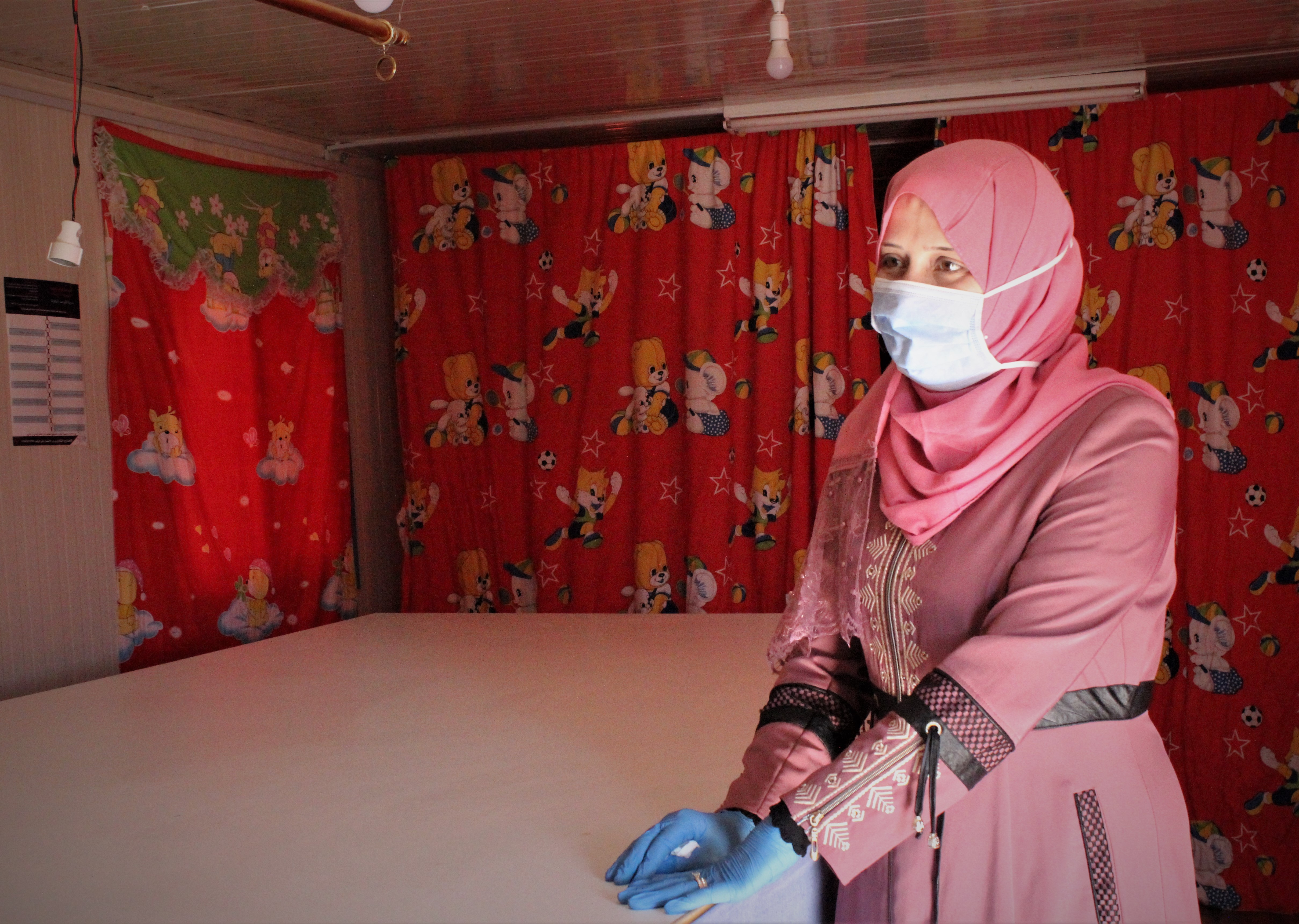From where I stand: ‘I believe everyone is a potential leader’.
Date:
Haifa Dammad knows the struggles of being the sole breadwinner of a family. Reflecting on her life between two crises, she discusses her engagement as community leader in the Za’atari refugee camp of Jordan, helping other women to gain news skills and access to information.

![]() I came to the Za’atari refugee camp in 2014 to reunite with my husband. I crossed the border alone with my children, four boys and two girls. The beginning our new life was not easy; soon my husband started to hit me. With the help of my brother, I wanted to get a divorce, but this would have meant leaving my children behind. I decided to stay and, shortly after, my husband remarried and moved out, leaving us with no means of support.
I came to the Za’atari refugee camp in 2014 to reunite with my husband. I crossed the border alone with my children, four boys and two girls. The beginning our new life was not easy; soon my husband started to hit me. With the help of my brother, I wanted to get a divorce, but this would have meant leaving my children behind. I decided to stay and, shortly after, my husband remarried and moved out, leaving us with no means of support.
I got married at the age of 13. With no education, no diploma, and no previous working experience, it was nearly impossible to find a job. I only knew the basics of tailoring and I tried to attend trainings in the camp to get better at it, in the hope to earn a sustainable income. I was constantly applying for incentive-based volunteer positions and I was ready to do any task. However, as opportunities were limited, no one was calling me back. I was struggling to support my children.
When the COVID-19 pandemic began, everything collapsed for me. Trapped all day in my caravan, I began feeling very depressed and sick all the time. I didn’t even have the strengths to take care of myself, I was sinking into an abyss. In July 2021, I was referred to the UN Women’s Oasis Center, where I was appointed as tailoring supervisor and master cutter thanks to the experience I gained over the years. At the beginning I was hesitant; I didn’t believe I was ready for such a responsibility and to train others while feeling so helpless.
However, the women at the Oasis were very supportive. One of my first days, I had to cut the cotton for a baby dress, and it was my first time using a professional cutter. The piece came out perfectly and that for me was a real turning point. It was like I finally found my potential.
Due to the pandemic, we were not able to work in person in the Center. Yet, I was still able to help others and acquire new responsibilities. I started to manage the women enrolled in the tailoring programme using WhatsApp, sharing critical information on COVID-19 preventive measures and available services in the camp, as well as advices and tailoring tips. In return, I benefited from the remote education support provided by the Oasis teaching assistants, ensuring my children were able to keep up with distance learning during such difficult circumstances.
Reflecting on past few years and my experiences, I believe everyone is a potential leader. We all have a role to play in supporting and lifting others. Now I feel strong, I’m ready to face any challenge’.
Haifa Dammad, 33 years old and mother-of-six, is Syrian refugee living in the Za’atari camp. She is enrolled in the UN Women’s incentive-based volunteering programme as tailoring supervisor. Generously supported by the Government of Japan and the Central Emergency Response Fund (CERF), and the governments of Canada, Finland, France, Iceland, and Italy, as well as UN Women National committees under the ‘Eid bi Eid’ pooled fund mechanism, the UN Women’s Oases are centres for building women’s resilience and empowerment through access to sustainable livelihood opportunities and multi-sectoral services, while also engaging men and boys in dialogue and mobilization for social equality. Her story relates to Sustainable Development Goal (SDG) 16, which promotes peace and security, and SDG 5 on gender equality and the empowerment of women.